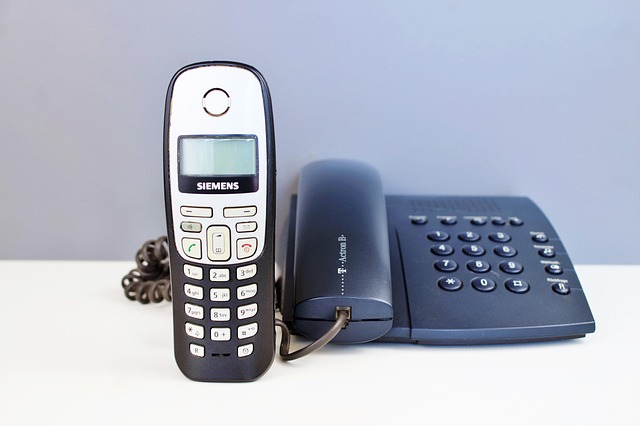Spam calls targeting Iowa's aging population have surged due to advancements in technology, with telemarketers using smartphones for mass unsolicited calls. This invades privacy and disrupts the lives of many, especially those reliant on phones for communication. Legal protection is vital; the Telemarketing Practices Act restricts such calls, but enforcement requires Iowans to document incidents and consult a specialized lawyer. Proactive measures like registering on the National Do Not Call Registry, using call-blocking apps, and educating oneself about telemarketer tactics can help. Local lawyers and community organizations play key roles in assisting seniors navigate these issues, ensuring a safer communication environment.
In the digital age, a persistent and growing concern for Iowa’s aging population is the increase in spam calls on their phones—whether landlines or smartphones. These unwanted telemarketing calls not only disrupt daily life but also pose significant challenges to seniors, who may be more vulnerable to financial scams and harassment. This article explores the impact of spam calls, legal protections available under Iowa law, strategies to combat them, and empowering resources for seniors to take control of their communication and safety.
Understanding Spam Calls: A Modern Nuisance
Spam calls, or unsolicited telephone marketing, have become a modern nuisance affecting millions worldwide, including Iowa’s aging population. With advancements in technology, telemarketers now utilize cellphones and smartphones to reach individuals en masse, making it increasingly difficult for people to distinguish legitimate calls from unwanted ones. These spam calls often originate from automated systems that dial randomly or use voice over IP technology, causing a significant disruption in daily life.
In Iowa, where many residents rely on their phones as their primary means of communication, the issue is particularly concerning. The rise of smartphone usage has made it easier for telemarketers to access personal information, leading to an influx of promotional calls from various sources. This not only invades privacy but also poses a challenge for older Iowans who may struggle to identify and block these unwanted callers. As such, there is a growing need for awareness and legal protection to combat this modern nuisance. A lawyer specializing in consumer rights can offer guidance on existing laws and help individuals navigate their options to mitigate the impact of spam calls.
The Impact on Iowa's Aging Demographics
In Iowa, as in many parts of the country, the aging population is a significant demographic shift. This growing segment, typically defined as individuals aged 65 and over, often relies heavily on their phones for communication, connection, and access to essential services. With advancements in technology, many older Iowans now own smartphones, providing them with increased mobility and convenience. However, this reliance on mobile devices has also made them more susceptible to a modern nuisance: spam calls.
Telemarketers and automated phone systems bombard Iowa’s aging demographic with unsolicited calls, often disguised as legitimate business offers or warnings. These spam calls can be distressing, intrusive, and even dangerous, particularly for those living alone. The constant ringing interrupts daily routines, causing stress and potentially leading to isolation. Moreover, many elderly individuals may not always recognize a scammer’s tactics, making them vulnerable to financial losses or personal information theft. Therefore, addressing this issue is crucial, and legal recourse through a lawyer specialized in consumer rights can offer much-needed protection for Iowa’s aging population in the digital age.
Legal Protections and Rights for Iowans
In Iowa, residents have legal protections in place to combat spam calls, especially those targeting the state’s aging population. The Telemarketing Practices Act restricts telemarketers from making unsolicited phone calls to individuals on their do-not-call list. This law applies to both landlines and cellphones, ensuring that Iowans can enjoy their privacy without constant interruptions.
If a resident feels their rights have been violated by a spam call or a persistent telemarketer, they are encouraged to document the incidents and consult a lawyer specializing in consumer protection. There are resources available to help Iowans block such calls and take legal action if necessary, empowering them to protect their personal space and peace of mind.
Strategies to Combat and Avoid Spam Calls
To combat and avoid spam calls, Iowans can take several proactive steps. One effective strategy is to register their phone numbers on the National Do Not Call Registry. This federal list restricts telemarketers from calling registered numbers for marketing purposes. Additionally, using call-blocking apps or features built into modern smartphones can significantly reduce the volume of unwanted calls. Many phone companies also offer tools to filter and block spam.
Moreover, educating oneself about common scams and tactics used by telemarketers can help. Staying vigilant and cautious when answering unknown calls is crucial. If a caller demands immediate action or expresses urgency, it could be a red flag. Consulting with an Iowa lawyer specializing in consumer protection can also provide guidance on legal options for those who have fallen victim to spam calls or experienced harassment.
Empowering Seniors: Resources and Next Steps
Empowering Iowa’s seniors to combat spam calls is a significant step in protecting their peace and safety. With the widespread use of smartphones and cell phones, telemarketers have found new ways to reach their targets. Many elderly Iowans may not be tech-savvy or aware of the resources available to block these unwanted calls. This is where local lawyers and community organizations play a crucial role in educating and assisting them.
Seniors can take several proactive measures to reduce spam calls. Installing call-blocking apps on their smartphones is an effective way to filter out unknown numbers. Additionally, registering for Do Not Call lists specific to Iowa can limit marketing calls from telemarketers. Engaging with local legal aid groups or senior citizen associations that offer guidance and support in navigating these issues is also recommended. These resources empower Iowans to take control of their phone lines and ensure a quieter, more secure communication environment.

